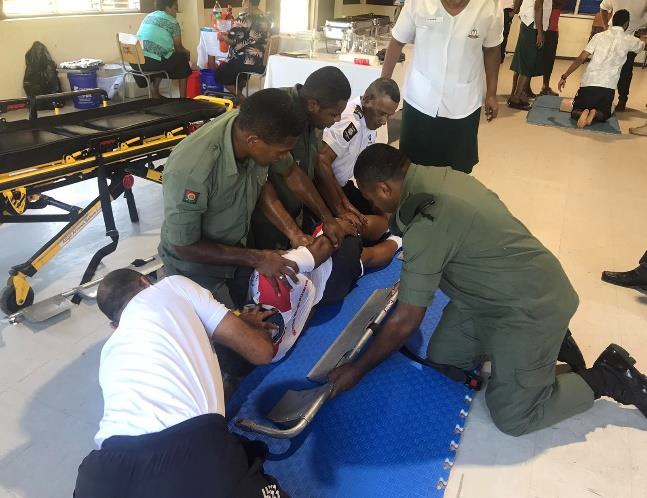
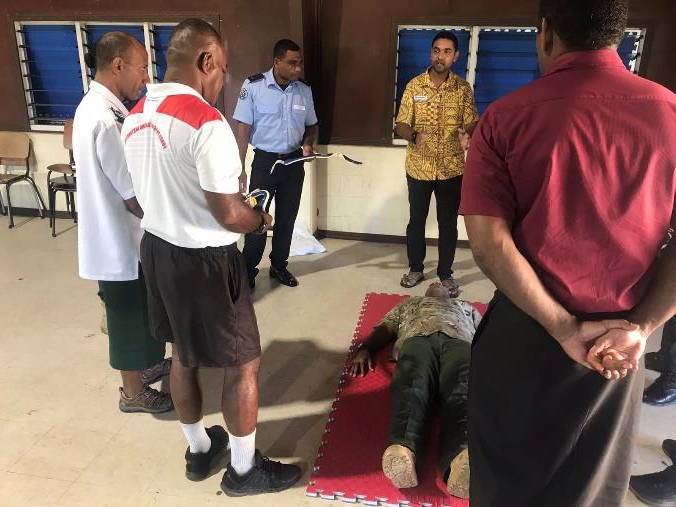
One of the beauties of the Primary Trauma Care system is that it can be adapted to work effectively in a wide range of settings.
A recent course held on 22nd – 23rd April 2022 in Suva, Fiji demonstrates the point perfectly. The aim was to train members from various pre-hospital services in vital trauma care. Course participants included members from the:
- Military
- Navy
- Police Force
- National Fire Authority
- St John’s Ambulance
Because so many communities and services in Fiji (and the Pacific region more generally) are remote and hard to get to, it’s these first responders – the ambulance drivers, the police, community health workers, nurses – who keep the health system operating.
They shoulder a heavy responsibility, transferring trauma patients to the hospital in a country where trauma is noted as being one of the top 5 causes of death and morbidity. The importance of providing context-appropriate primary trauma care training is crystal clear.
Adapting the PTC Course for the Pre-Hospital Setting
The 2 day course held recently in Fiji shows how our Pacific PTC leaders are experts in adapting the PTC course content for their audience.
They don’t change the fundamental content or structure of the course – the course has a powerful core message of basic ‘ABC’ trauma care, using a simple system and whatever resources you have available.
But they do change their teaching style and emphasis, and then use the ‘hands-on’ sessions (skill stations, discussion groups and scenarios) to embed core skills appropriate to the participant.
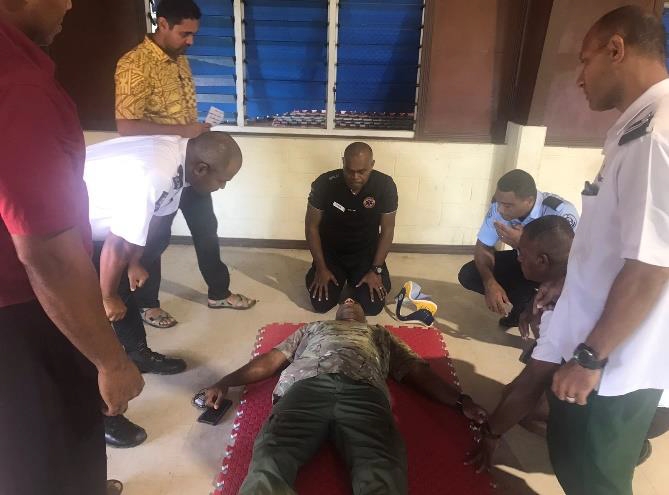
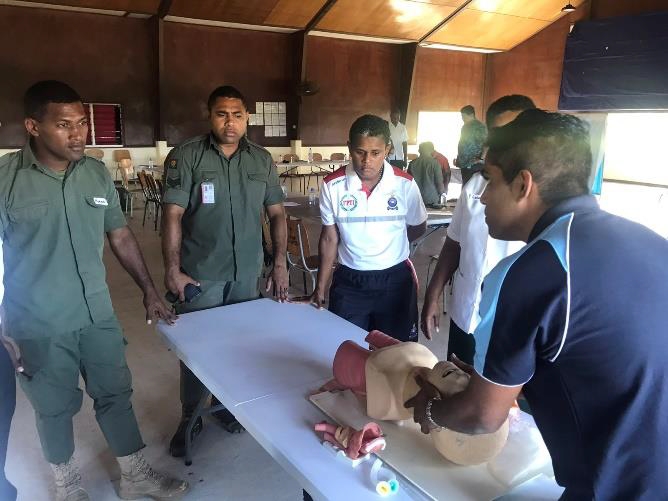
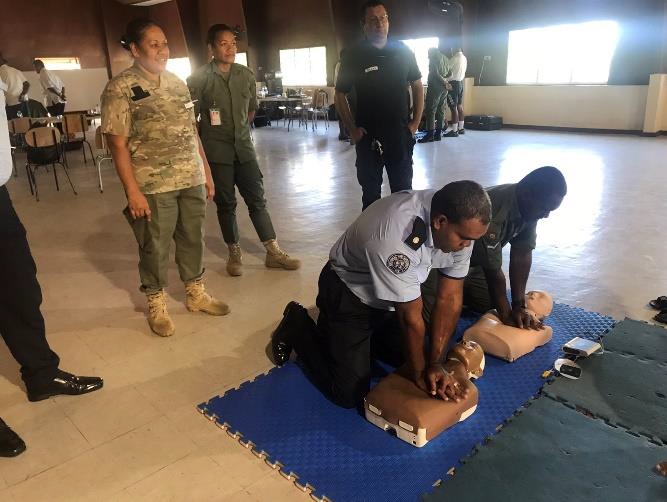
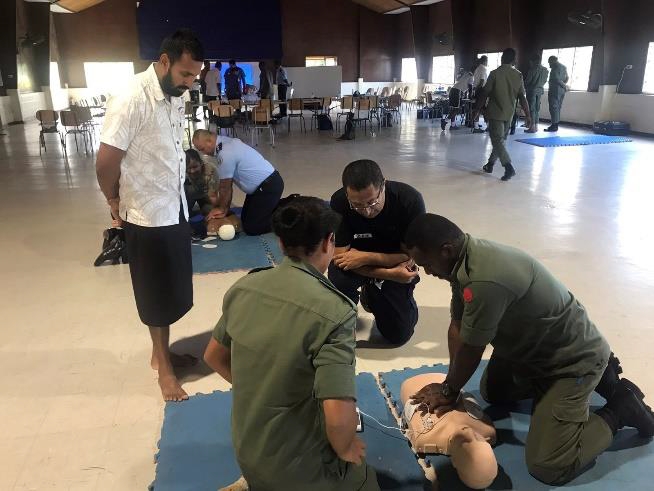
The result? PTC training is opened up to non-medically trained first responders, with the potential of saving more lives on the ground.
Just one more reminder of the value PTC brings to a very wide audience – having the power to transform the essential and potentially life-saving care delivered to trauma patients.
What was changed
For those familiar with the PTC course, here are some key pointers as to what was changed during the recent Fiji course:
- Those from pre-hospital services participated in 5 skills stations, instead of the usual 4. These were:
- Basic Airway
- C-Collar Application
- Log Roll and Transfer
- Bystander Hands-Only CPR
- Chest Injuries (Needle Decompression and Three Way Dressing for Open Pneumothoraxes)
- Workshop sessions on day 2 were designed to be relevant to participants, focusing on areas most likely to be of benefit.
- Those from pre-hospital services were set 15 MCQs as opposed to the normal 20.
If you would like further details on any of the above, please contact us.
